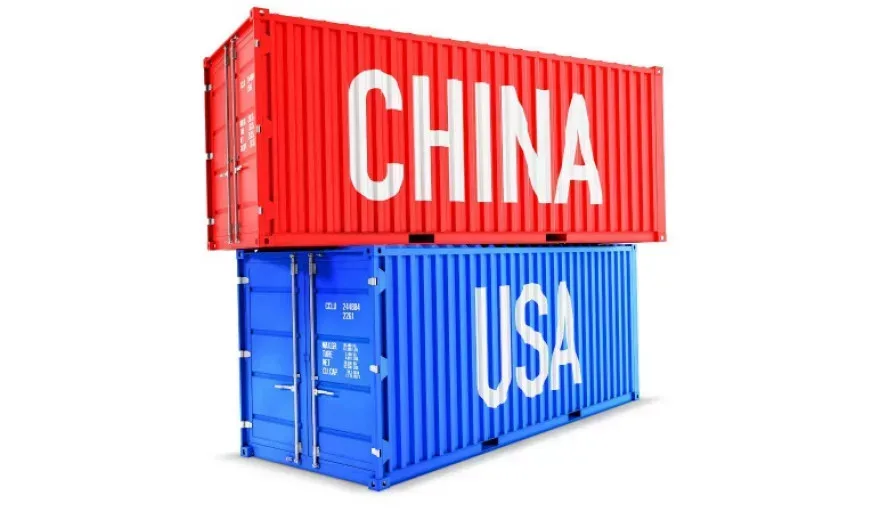Adeline Van Houtte of the Economist Intelligence Unit discusses the potential risks and opportunities of the China-US trade war, and how its consequences can affect trade globally.
INTRODUCTION
The sense that the US is ‘losing’ under existing international trade arrangements is one of a number of ideological positions held by the US president, Donald Trump. His administration has decided to introduce tariffs on US$200bn-worth of Chinese imports, in response to which China is planning to levy tariffs on US$60bn-worth of US imports.
Additional retaliatory tariffs from the US, covering most of its imports from China are now likely, and the resultant impact on economic growth for both the US and China will undoubtedly be negative.
For China, it comes at a challenging time for its economy. Concerns over the strength of domestic demand have returned, as momentum in both private consumption and investment has weakened. The trade war will also leave a mark on the US. Although it continues to receive support from the Trump administration’s fiscal policies, as well as the ongoing strength in the labour market, the escalating trade dispute with China will start to weigh on export growth for the next couple of years.
EXPECT COLLATERAL DAMAGE
The bilateral trade war is unlikely to directly impact African economies, as they are not especially integrated in global value chains and mostly export raw, unfinished goods. However, indirect effect from slowing growth in the two superpowers’ economies will create unwelcome challenges for Africa in terms of currencies, slower trade and dampened investor sentiment.
The most imminent impact is likely to be on emerging markets via financial markets. Increased anxiety surrounding the US-China trade war could trigger large capital flights to safety and a sell-off in emerging markets’ riskier assets—as was witnessed for example in South Africa, where the rand went from an average of R12.5 against the dollar in May to R14.8 in September. In turn, the negative impact on currencies and bond markets would lead to spikes in the already high debt servicing costs, potentially unleashing a vicious cycle in these economies.
Another risk to the African continent comes from its particularly close economic relationship with China (Africa’s largest trading partner and a major investor), making it vulnerable to potential weaknesses in the Chinese economy. Slower growth in China could therefore depress investment flows from there.
At the same time, any slowdown in China-centred trade would negatively affect demand for raw materials such as iron ore, coal, and platinum, which could seriously distress African economies that depend on exporting these commodities and threaten to create another price bust, like the one experienced in 2015-16. Fiscal and external liquidity buffers are both too depleted to manage another export slump.
Finally, another undesirable impact could derive from the protectionist views of Mr Trump in general. Currently 40 Sub-Saharan African countries have duty-free access to the US market for a wide range of products under the African Growth and Opportunity Act (AGOA). If the US decides to take a more aggressive global position on trade protectionism, the AGOA could come under new scrutiny and potentially even be scrapped. However, this is unlikely. Africa remains low on Mr Trump’s foreign policy agenda and the US has a favourable trade balance with most African countries, which means that, in Mr Trump’s zero-sum vision of the world, the US remains the ‘winner’ in its relationship with Africa.
(NOT) A PIECE OF CAKE
Despite the negative effect on global trade, some exporters in Africa could take the opportunity and benefit as supply chains adjust to the new environment. The imposition of tariffs on certain goods could provide a competitive advantage for some exporters, allowing them to command a greater market share in segments such as agricultural products like soybeans or animal feed that were previously imported from the US to China and now targeted by tariffs, for example. This could in turn translate in increased Chinese investment in these African exporters’ agricultural sectors. Another small window of opportunity comes from the oil market. West Africa produces similar quality crude as the US, and China could replace US crude imports with West Africa’s.
However, the opportunity for most African countries to quickly fill in the voids left by the US or China in their respective economies and capitalise on the US-China trade war are thin. Productivity on the continent is extremely low, the ease of doing business is poor and integration, both at local and international level, is shallow. Rapidly improving their business environment would therefore be necessary for these countries to be able to substitute production from either the US or China.
Unfortunately, this takes a lot of time, something China and the US cannot afford, and other producers (notably those elsewhere in South and South-East Asia) are better positioned to capitalise. African countries should therefore focus on managing any negative fallout from the trade war by diversifying their economic structure, trade partners and investments sources. Indeed, the continent has more to lose than gain from this trade war.






























